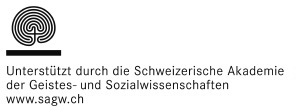Submissions
Submission Preparation Checklist
As part of the submission process, authors are required to check off their submission's compliance with all of the following items, and submissions may be returned to authors that do not adhere to these guidelines.- The manuscript has not been previously published, nor is it under review with another journal. If another manuscript drawing on the same dataset has been submitted or published previously, please explain how it differs from this manuscript in your comments to the editor.
- The title page and the manuscript (including abstract, tables, figures, and references) are in Microsoft Word, OpenOffice, or RTF document file format.
- The manuscript and supplemental files are fully anonymised.
- The manuscript is written in British English spelling style consistently throughout the paper.
- The manuscript adheres to the word limits as defined for the respective article types.
- The manuscript is prepared and formatted in strict accordance with our Submission Preparation Guidelines.
- The submitted work adheres to the international standards for authors as proposed by the Committee on Publication Ethics (COPE).
Original Research Paper
Original research papers report empirical studies (based on quantitative and/or qualitative methods) and range between 4,000 and 7,000 words (excluding abstract, notes, tables and figures, references, and supplements).
Theoretical Paper
Theoretical papers present innovative thoughts on existing theories and models for health communication, or present new theoretical considerations. Theoretical papers range between 4,000 and 7,000 words (excluding abstract, notes, tables and figures, references, and supplements).
Methodological Paper
Methodological papers focus on methodological issues relevant for the discipline (e.g., tracking health data). Methodological papers range between 4,000 and 7,000 words (excluding abstract, notes, tables and figures, references, and supplements).
Review Article
Review articles systematize the existing literature or present a meta-analysis of published results or multiple data sets. Review articles range between 4,000 and 7,000 words (excluding abstract, notes, tables and figures, references, and supplements).
Living Reviews
Living reviews are updated versions of review articles. They need to incorporate the research that has been published since its original/last publication and underline the development and its relevance to the field. The updated version will also be peer reviewed (single blind) and published as new article with its own DOI.
Research Reports
Research reports focus on methods, such as the development of a new questionnaire, or they feature small empirical studies that do not require an extensive theoretical rationale. They contain up to 3,000 words, excluding abstract, notes, tables and figures, references, and supplements.
Special Issue: Mis- and Disinformation about COVID-19
This section covers all submissions to the special issue on mis- and disinformation about COVID-19. All submissions that fit any of the EJHC formats are welcome: original research papers, theoretical papers, methodological papers, review articles, brief research reports.
Copyright Notice
The authors agree to the following license and copyright agreement:
a. Authors retain copyright in their work.
b. Authors grant the European Journal of Health Communication the right of first publication online on the internet (on the publication platform HOPE of the Main Library of the University of Zurich).
c. The electronic contributions on the internet are distributed under the „Creative Commons Attribution 4.0 International“- License (CC BY 4.0). This license allows others to copy and redistribute the work in any medium or format, to remix, transform and build upon the material with an acknowledgement of the work's authorship and initial publication in the European Journal of Health Communication . These conditions are irrevocable. The full text of the license may be read under http://creativecommons.org/licenses/by/4.0/.
d. Authors are able to enter into separate, additional contractual arrangements for the non-exclusive distribution of their work, as long as the conditions of the CC BY 4.0 License are fulfilled and initial publication in the European Journal of Health Communication is acknowledged.
e. Authors grant the Editors commercial rights, using a publishing house, to produce hardcopy volumes of the journal for sale to libraries and individuals, as well as to integrate the manuscript, its title, and its abstract in databases, abstracting and indexing services, and other similar information services.
f. This agreement is subject to possible legal disclosure obligations.
g. This agreement is governed by Swiss law. Court of jurisdiction is Zürich.
Privacy Statement
The names and email addresses entered in this journal site will be used exclusively for the stated purposes of this journal and will not be made available to any other party and for any other purpose.








